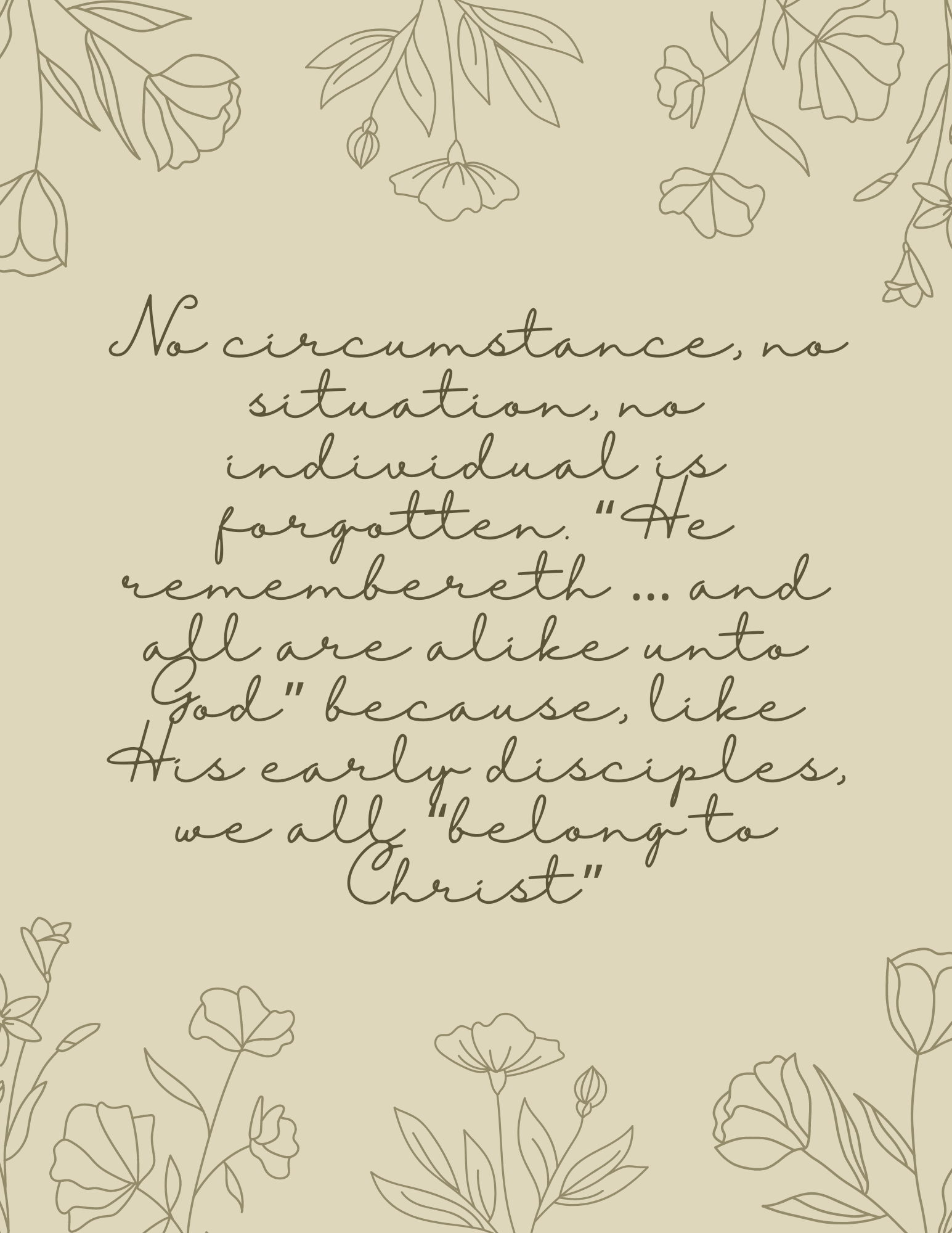Ministering brothers and sisters have the opportunity to make sure that every member knows they have a friend within the ward or branch.
- God’s love for His children is not exclusive, but rather all-inclusive. He invites
 all to “come unto him and partake of his goodness; and he denieth none that come unto him”
all to “come unto him and partake of his goodness; and he denieth none that come unto him” - No circumstance, no situation, no individual is forgotten. “He remembereth … and all are alike unto God” (2 Nephi 26:33) because, like His early disciples, we all “belong to Christ” (Mark 9:41; see also Mosiah 5:7).
Loved this talk for this month
-
“Including Everyone,” Liahona, Jan. 2021, 32–33.
- Other thoughts from church's web site
-
Ideas for Creating Belonging
- What can ministering sisters and brothers do to help create a place of belonging for others?
-
Hear them. We feel a sense of belonging when we know we are heard and seen as we are, even with our imperfections. We don’t have to fix someone’s problems—in fact, we often can’t. But we can listen with compassion and curiosity, reflect back what we hear to make sure we are understanding, and ask what else is on their mind. These are skills of connection we can practice personally and model for others.
-
Pray for them. We may feel prompted to pray for them. We may also be prompted to ask if we can pray with them or to ask what we can pray for on their behalf.
-
Invite, introduce, and include. Invite them to ward activities, service projects, social events, or informal group activities. Take them with you if possible, introduce them to others, and include them in conversations by asking them questions that bring them in. Help those who have newly moved in to know who other new people are, as they may also be looking for friends.
-
Assess. Ask them directly how connected they feel in the ward. Who are their friends? Who could be? Ask about their interests, hobbies, children, and concerns so you can be alert to opportunities to connect them with others they have things in common with, or who might need their skills.
-
Point out strengths. We feel belonging when we know we have something to give. Point out things you notice they do well. Ask what someone who knows them well would say their strengths are. If they don’t know, invite them to ask. Look for ways their strengths could strengthen others.
-
Counsel with leaders. As appropriate, let ward leaders know what the strengths and needs of these others are so that the leaders have the information they need as they seek inspiration for meaningful assignments and callings.
-
Empower them. Help them appreciate the skills they have by asking questions such as these: When you’ve needed new friends in the past, what have you done? If you wanted to deepen a friendship with someone, what would you do? What have you tried so far as ways to connect with others? What else could you try?

